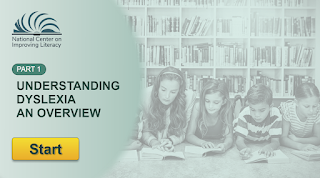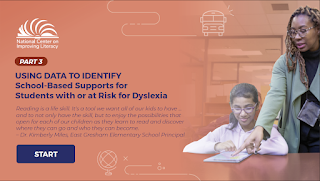EdWeek just posted this article about LETRS Training that I found very interesting. You can check the article out here: What Is LETRS? Why One Training Is Dominating ‘Science of Reading’ Efforts
First, let's talk about what LETRS is.
The briefest explanation is that LETRS is a professional development program that helps teachers understand how children learn to read and the basics of how to teach foundational reading skills. Or if you want a more commercial definition, you can check out the Lexia Learning site for LETRS
How does this relate to Oregon? And specifically, Eugene, OR?
Decoding Dyslexia Oregon made a profound shift right after the 2019 NAEP report came out (this report basically says that only Mississippi children made any gains in learning to read by 4th grade), to focus on getting teachers trained in LETRS. This shift was from that focus on dyslexia to a focus on teaching all kids to read the way that all kids can learn to read. However, DDOR is mostly active in the Portland area and that's where the focus has been. Here in Eugene, not so much. There is a relatively young chapter of DDOR in the Eugene area, but I haven't been involved in most of that because it was just getting off the ground when COVID hit.
Slowly, the LETRS information has trickled into the ears of Eugene's teachers.
Did you know that Bethel School District has been aligned with the University of Oregon educational research community for decades? Most Bethel schools are teaching reading using evidence-based, systematic reading instruction. Or, they were the last time I knew anything about it which was maybe 5 years ago?
Did you know that 4j schools are so decentralized that they all do things completely differently? Some schools follow evidence-based instruction and some don't and even though they are all supposed to use the same language arts curriculum, some of them just don't use it. (Not that this is a big deal when your curriculum is kind of crappy to begin with)
Did you know that there are about 200 local teachers who are going through LETRS training?
Did you know that even though school districts could have used COVID money to pay to get their teachers trained, that the teachers getting LETRS training locally are getting it through funding from the United Way?
Why am I asking all of these questions? Possibly because I'm enraged that our largest local school district wouldn't fund such important training...possibly that I feel my question marks drip with sarcasm and disgust.
Thoughts about LETRS
Is LETRS the only option? It's absolutely not.
Is it the only option that people generally know about and will help increase teacher knowledge about evidence-based reading instruction? Yes.
Does something need to happen RIGHT NOW to help teachers teach kids how to read? Absolutely.
Is LETRS too expensive? Probably, but we have to start somewhere and this is what is readily available. Administrators have heard of it because Mississippi was the only state to make gains in reading and it's what they used.
Is LETRS a cure for what ails schools' ability to teach reading? Probably not? I think that you can't just provide LETRS training to teachers and expect that things will be magically fixed. There has to be a fundamental change at the district (or state) level. If the district doesn't think that they need to teach kids how to read (obviously district leaders wouldn't characterize it this way, but this is what it IS), all the LETRS training in the world isn't going to shift the needle.
However, is it a bad thing to inform teachers that perhaps they've been doing it wrong all along? NO! Please TAKE LETRS TRAINING if that is all that is available to you as a teacher. The more teachers in your district who are in the know, the more pressure that can be put on school boards and administrators to make giant shifts in the way that reading is taught in our schools! Because make no mistake, giant shifts NEED to happen so we don't continue to create a population that is semi-literate.
What are the other options?
I'm going to preface this by saying I really know nothing about any of these trainings. Some of them are going to be less intensive and some are more intensive. What I do know is that they are all (in relatively good faith, if with an eye to profit) trying to get evidence-based instructional practices into the hands of teachers. So, I'm not rating these things and I'm not putting them in any particular order. This is just informational.
- The Reading League Online Academy. Also an introduction to Basic Reading Instruction for Parents
- CORE Learning Accelerated Reading Achievement with the Science of Reading
- Fun fact: Carrie Beck who used to run the CTL Reading Clinic and who used to be the state level dyslexia specialist for Oregon is the Director of Literacy at CORE.
- AIM Institute for Learning & Research Pathways Programs Pathways to Proficient Reading Course
- The Center for Literacy and Learning has a couple of options for virtual coaching and online learning.
- Fun fact: They put on a fabulous conference every year called Plain Talk about Literacy and Learning. It's in New Orleans and always attracts the big names in the science of reading community.
- The Big Dippers This is a condensed course but is also inexpensive comparatively.
- EBLI For educators, but also they have what I think are free resources for Parents
- Keys to Literacy Keys to Beginning Reading PD course. I've heard good things.
Final Thoughts
Don't discount the free resources! Almost every one of those organizations above also has a host of free resources that can help you get started if you don't have funding or support from your district.






